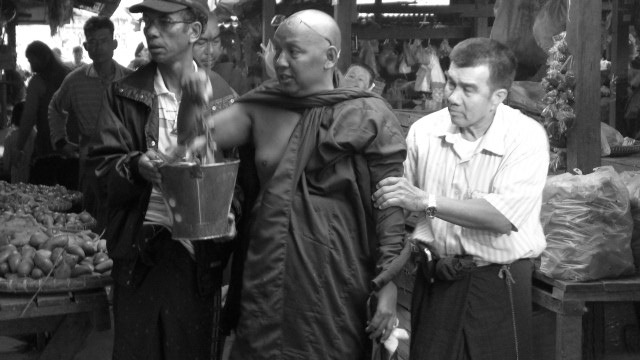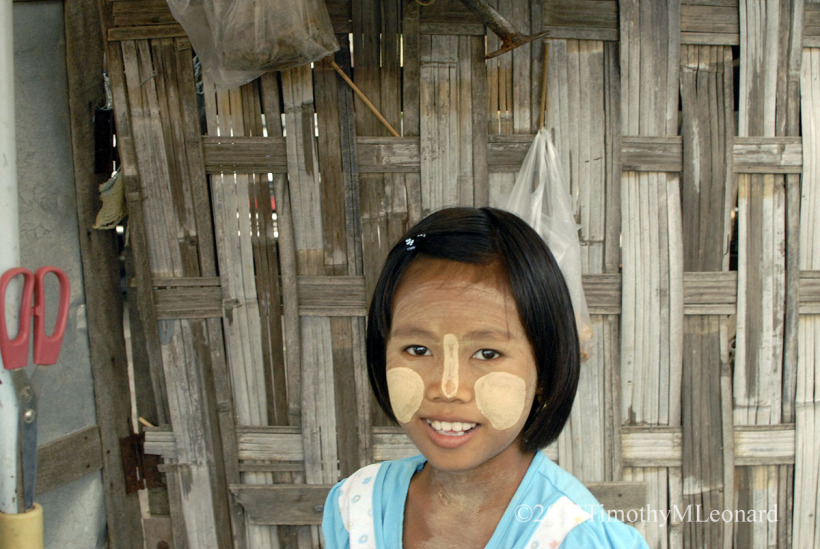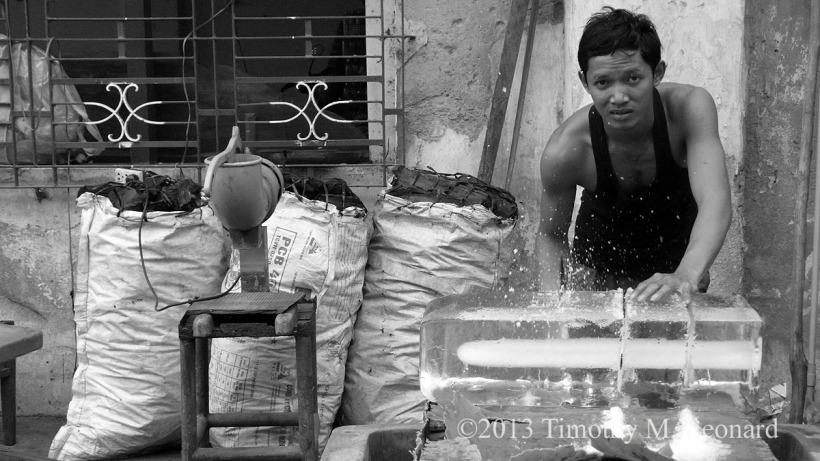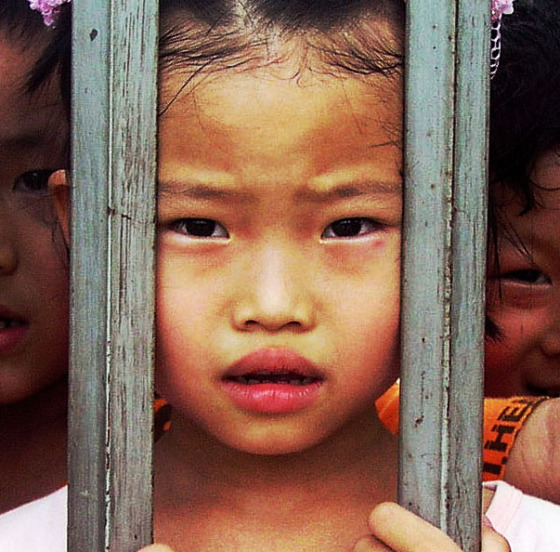A cell phone played. Omar rummaged in his robes. A depressed suicidal woman named Clare in Washington State was on the Suicide Hot Line. It may as well have been shit out of luck S.O.L. He switched from Arabic to English.
“Yes?”
“I am trying to save my insecure relationship from jealousy.”
“Jealousy’s a disease. It eats people alive. What are you looking for?”
“I am looking for love and meaning. Can you help me?” She had all the questions.
“I am only an emissary between people. Between you and your dream.”
“It’s a nightmare. What’s going to happen to me?”
“You’d best be prepared for armies of touts, hustlers, beggars, thieves and economically loveless destitute men. They will want to escort, guide, lead, and administer their opportunity,” he said.
“Will they be gracious or benevolent with their tricks, traps, deviations and detours offering fake potential to save me? Will their well formed greed based on my desire, an illness of imaginary needs plead for my attention deficit disorder?”
“Yes. Eight hours on the ground in Morocco will seem like twenty-four. You’ll become a character in your own low budget film. It will open in small art theaters. You’ll be all the characters in the comic tragedy.”
Listening to Omar, I imagined everything as the suicidal woman’s voice assaulted the blind man.
Clare was too poor to pay attention.
She was beat. Omar knew Clare would be an expendable extra in an independent film. If she didn’t get real smart real fast she’d be lost in the drama. She needed a new identity theory. She’d change her name to Clarification.
The story was complicated with many jump cuts.

I remembered Ann, a New York literary agent’s advice. “Keep the big themes in mind and give us strong narrative structure.”
“Why? It’s not linear or logical.”
“I can only represent you if your work has these ingredients. Publishers want books for a general readership. It’s a tough market now. 175,000 books were published in this country last year.”
“I’ve survived markets in many countries Ann. It’s a miracle I’m alive to tell the tale. Traditional publishing is all about marketing, branding, product, price and placement with a hook.”
“True. It’s too disjointed and sporadic as it stands. You need you to express more artistic and emotional beauty. I expected more from your time in Vietnam. I want to feel what you felt. I want you to expose your vulnerability. I want to detect patterns and opportunities.”
“Vietnam was FUBAR, Ann. like Iraq, like any conflict.”
“What’s that mean?”
“Fucked Up Beyond All Recognition.”
“Oh, I see.”
“This is honest work Ann. Memoirs and stories are about hunger. Some are even about food. This is edgy gonzo shit. It blends creative nonfiction with memoir, travel writing, personal essay, literary journalism, social commentary, magical realism, and ethnology. I’ve asked myself, who or what has come alive? I’ve let it speak. I’m a conduit.”
“Tighten it up and send me your revisions. You can’t be a one-trick pony in this business. I need to make 15% off your genius because I’m the expert. What else are you working on?”
“At the moment I’m traveling with Omar, a blind Touareg Berber from Morocco who lives in a Spanish cave with a tribe of survivors after 9/11. He’s one hell of a storyteller and we’re sharing tales. He’s given me a stack of paper higher than Everest to read and revise. His daughter is a word-weaver of serious renown working on a new narrative structure in an isolated Spanish pueblo. Together we’ve weaved 180,000 words so far. It’s about levels of personal and spiritual awareness, emotional growth, 9/11 repercussions, terrorism, religion, cultural prejudice, and healing.”
“What’s your hook in fifty words?”
“How oral traditions, myths, and truths are passed in verbal form from generation to generation in a highly metaphorical way. Stories are primarily a comic vehicle for moral instruction or spiritual guidance. Tragic narratives have been overused since the Greeks and Europeans. A tribe’s customs and structure...healing, authenticity, awareness, alienation, loneliness, boredom...it’s just a fucking book for God’s sake ...sheets of paper inside two pieces of cardboard...we’re breaking up Ann. I can’t live with him and I can’t live without him, this blind muse of a seer. I’ll call you when I get back to the states of conspicuous consumption. To the states of amnesia.”
Meanwhile, Clare changed long distance carriers to get a better plan. She failed to plan and planned to fail. She whispered to Omar on a tenuous connection, “I played a willing manipulative victim. I wanted to kill myself. I wanted people who loved me to feel guilty and responsible for my suffering. My life is fear and ignorance. I collapsed inside my chaos, fear and grasping. I had to ask for help.”
“I see,” said Omar in a clear clairvoyant voice.
“I tried a walking meditation. It was really hard. I crawled. I walked. I tried to run. I collapsed into the quicksand of my neurosis. I wanted to fly like an eagle. My monkey mind went nuts. I slowed down sensing a new beginning inside me, inside my life. I walked on the curvature of the earth.”
“Marvelous. You have to break down before you break through.”
“I need to see you,” she said. “Where can I find you?”
“At Paleolithic caves south of Ronda.”
Before their connection died Clare related a quick story.
“There was a horrific accident.”
“What happened?” Omar knew what he didn’t know.
God and Allah and the devil are in the details.
“Crazy men took planes and crashed them into city sky scrapers. The big apple.”
“I see.” He paused to hear more. It was a learning tool he picked up moving through the world’s worst nightmare manifesting historical fairy tales where Poverty and Wealth raised children named Expectations.
“Yes,” she said, “it was shocking.”
“Has the healing started?”
“Healers are working overtime. It’s going to take forever,” she stammered.
“Yes,” he said, “17,000 children in the world starve to death every day. Poverty is the real terrorism.”
“Oh,” she said, “I didn’t know that.”
“It’s just a thought.”
She couldn’t believe he didn’t know. Media masters in her right wing country had assembled their militant word/image arsenal and persuaded, cajoled, sold, exchanged, blasted, admonished, punished, harangued and scared them shitless, informing them how it affected their little world.
They ate fear like there was no tomorrow.
She was one weak sister. Being depressed and suicidal didn’t help. Friends, family and media convinced her the world was one huge scary place and she was a small expendable organism. Her habitat was on a well-exploited fault line. They sold her fear, healthy doubt and compassionate uncertainty in a nice neat little package. She consumed the whole enchilada.
“Omar and his friends knew many would remain in their complacent darkness,” said a veiled woman in the compartment.
They turned to her.
“It was very comfortable there. They would always live in shadows, oblivious to historical truths blinded by five senses, colors, sights, sounds, vibrations and frequencies. They were transparent h-saps. It went right through them. Clear through.”
“How do you know this?” said Omar.
“Their world is made of glass, their vision obscured by ignorance and compliant stupidity. They needed a large dose of painkillers and glass cleaner for their belief windows. Tears softened their pain. They wiped down the days of their demise,” she said looking out windows flashing their reflections. She had old deep wise eyes.
“How do you see this prophecy?” said Omar.
“My name is Rose. I am a seer. I was born in the dark of the moon. I remember the future.”
“Where do you come from and where are going?”
“I’m like you and your companion here. Passing through.”
The three of us were very comfortable with the dark arts, shifts, universal frequencies and manifestations.
The Heart Sutra said, ‘emptiness was form and form was emptiness.’
A Century is Nothing







 Share Article
Share Article 





